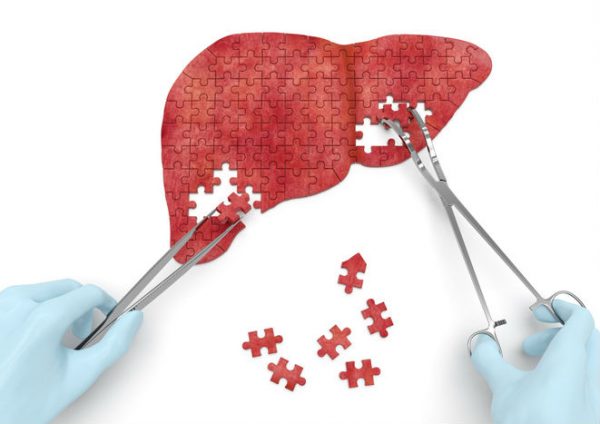
A Boehringer Ingelheim drug in development for weight loss now has data from a separate mid-stage clinical trial showing dramatic reductions across several measures of a fatty liver disease whose severe problems can lead up to requiring a liver transplant.
In preliminary Phase 2 clinical trial results announced Monday, 48 weeks of treatment with the experimental drug, survodutide, led to 83% of patients showing statistically significant improvement in the disease, metabolic dysfunction-associated steatohepatitis, or MASH. By comparison, 18.2% of patients met that main study goal.

With the Rise of AI, What IP Disputes in Healthcare Are Likely to Emerge?
Munck Wilson Mandala Partner Greg Howison shared his perspective on some of the legal ramifications around AI, IP, connected devices and the data they generate, in response to emailed questions.
The results were determined by liver biopsy, which showed improvement from the treatment was achieved without worsening of fibrosis, the liver scarring that is characteristic of the chronic liver disorder. Specific details were not provided, but Boehringer Ingelheim said its drug met all secondary goals, including a statistically significant improvement in liver fibrosis. These are preliminary data. The privately held German company said full data will be presented in coming months.
Survodutide comes from the labs of publicly traded Zealand Pharma, which struck up a research collaboration with Boehringer in 2011 focused on developing therapies for type 2 diabetes, obesity, and non-alcoholic steatohepatitis (NASH), which is now referred to as MASH. The drug simultaneously activates two gut hormone receptors. Targeting the receptor for GLP-1 decreases appetite and increases satiety; hitting the glucagon receptor offers the potential to increase energy expenditure, which the company said potentially contributes to fibrosis improvement.
Last June, Boehringer Ingelheim presented data showing its drug met the main goal of its Phase 2 test in obesity. A Phase 3 study in obesity is underway. The Phase 2 test of survodutide in MASH enrolled 295 participants. This study is evaluating three doses of the drug, administered once weekly by injection. In addition to preliminary results reported Monday showing improvement in the disease at all three doses, Boehringer said the drug did not show any unexpected safety or tolerability issues.
Survodutide is a potential competitor to Eli Lilly’s tirzepatide, which activates two gut hormone receptors: GLP-1 and GIP. Earlier this month, Eli Lilly reported preliminary Phase 2 data for tirzepatide in MASH, with results showing 74% of study participants who received the highest dose achieved the study goal compared to 12.6% of those given placebo. Tirzepatide was first approved for type 2 diabetes and has become a blockbuster seller in that indication, marketed under the brand name Mounjaro. Last fall, the FDA approved the drug for chronic weight management, where it’s marketed as Zepbound.
While Lilly’s MASH results show its drug led to “clinically meaningful” improvement on the fibrosis secondary endpoint, Boehringer said survodutide met all of its secondary endpoints, including demonstrating statistically significant improvement in liver fibrosis. Boehringer Ingelheim contends this result positions its drug to top its rivals.
“These MASH results show survodutide has potential to become a best-in-class treatment, and we believe its true differentiator is the action of the glucagon receptor agonism which works directly on the liver,” Carinne Brouillon, head of human pharma, Boehringer Ingelheim, said in a prepared statement.
Financial analysts are more cautious. In a note sent to investors, Leerink Partners analyst Thomas Smith said there are limitations in interpreting the Boehringer data, including the trial’s enrollment of a broader population of patients that includes those with mild fibrosis. Without knowing the proportion of the patient enrollment this group represents, it’s unclear whether or how much these patients contributed to the overall fibrosis improvement or whether this benefit holds only in those in more advanced stages of fibrosis, he said. It’s also unclear whether the analyses represent the drug taken as advised or a more real-world situation in which patients may take the drug irregularly or stop taking the medication. Smith also noted a lack of detail on the drug’s safety and tolerability.
“We view these as key details needed to properly contextualize the topline results, and expect these data will be featured as a late breaking presentation at the upcoming European Association for the Study of the Liver (EASL) Congress in June,” Smith said.
The MASH field could have its first therapeutic product by then. The FDA set a March 14 target date for a regulatory decision on Madrigal Pharmaceuticals’ drug candidate, resmetirom. The once-daily oral small molecule is designed to bind to and activate thyroid hormone receptor beta. This receptor plays a role in multiple pathways associated with liver health.
Photo: Sakramir, Getty Images














